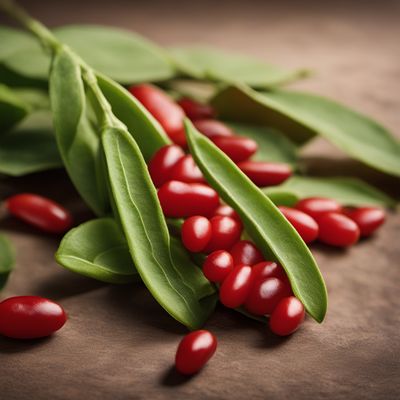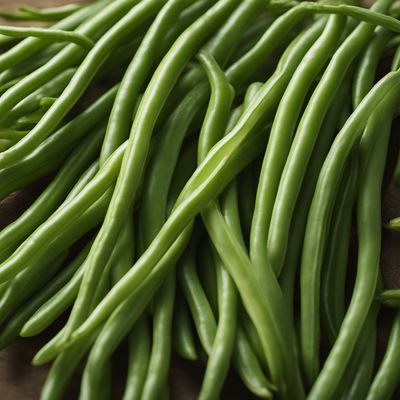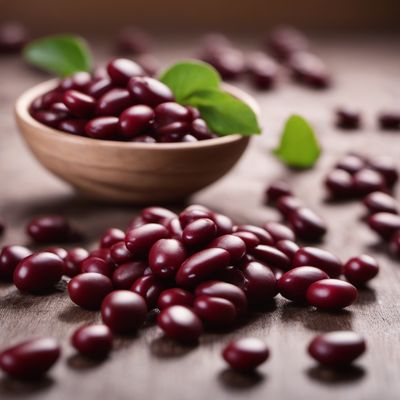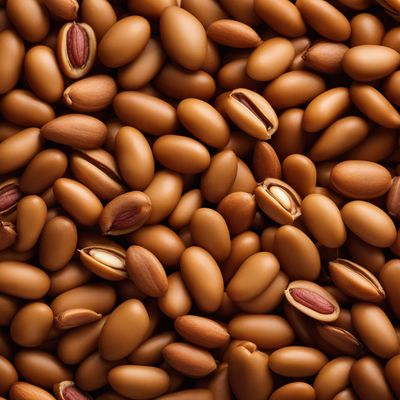
Ingredient
Black gram (fresh seeds)
The Nutritional Powerhouse: Fresh Black Gram Seeds
Black gram is a small, black-skinned legume with a creamy white interior. It has a firm texture and a distinct earthy flavor. When cooked, the seeds become soft and creamy, making them perfect for soups, stews, curries, and even desserts. Black gram is a staple in Indian cuisine and is highly valued for its high protein content and other essential nutrients.
Origins and history
Black gram is native to the Indian subcontinent and has been cultivated for thousands of years. It has a long history in Indian cuisine and is considered one of the oldest cultivated legumes. Black gram holds cultural significance in Indian households and is often used in traditional dishes during festivals and special occasions.
Nutritional information
Black gram is a nutritional powerhouse, packed with protein, dietary fiber, iron, magnesium, potassium, and vitamin B. It is also low in fat and cholesterol, making it a healthy choice for those looking to maintain a balanced diet.
Allergens
Black gram is generally well-tolerated and not known to cause allergies. However, individuals with legume allergies should exercise caution.
How to select
When selecting fresh black gram seeds, look for plump, unbroken seeds with a shiny black skin. Avoid any seeds that appear shriveled or discolored. Additionally, check for any signs of moisture or insect damage.
Storage recommendations
To maintain the freshness and quality of black gram seeds, store them in an airtight container in a cool, dry place. Properly stored, they can last for up to a year.
How to produce
Black gram can be grown at home by soaking the seeds overnight and then planting them in well-drained soil. Regular watering and sunlight are essential for its growth. Harvest the pods when they turn yellow and dry them in a well-ventilated area before removing the seeds.
Preparation tips
Before cooking, rinse the black gram seeds thoroughly and soak them for a few hours or overnight to soften them. They can be boiled, pressure-cooked, or used in various recipes like dal, soups, and curries. To enhance the flavor, consider tempering with spices like cumin, mustard seeds, and curry leaves.
Culinary uses
Black gram is a versatile ingredient used in a variety of dishes. It is commonly used to make dal, a popular Indian lentil soup. It is also used to make idli and dosa batters, papads, and vadas. In some regions, black gram is ground into flour and used to make bread and other baked goods.
Availability
Black gram is commonly available and cultivated in India, Pakistan, Bangladesh, and other South Asian countries. It is also found in specialty grocery stores and supermarkets worldwide.
More ingredients from this category » Browse all

Runner beans (without pods)
The Vibrant Green Delight: Unveiling the World of Runner Beans

Rice beans (without pods)
The Versatile Rice Bean

Guar beans (without pods)
Versatile Legume Powerhouse

Broad beans (without pods)
The Versatile Legume

Ervils (without pods)
Delicate Green Gems

Yardlong beans (without pods)
The Versatile Legume

Lima beans (without pods)
The Versatile Lima Bean

Azuki beans (without pods)
The Versatile Azuki Beans

Stink beans (without pods)
The Pungent Delicacy: Stink Beans Unleashed

Vetches (without pods)
The Versatile Vetch

Jack beans (without pods)
The Versatile Legume: Unveiling the Wonders of Jack Beans

Mung beans (without pods)
The Mighty Mung: Unlocking the Power of Mung Beans